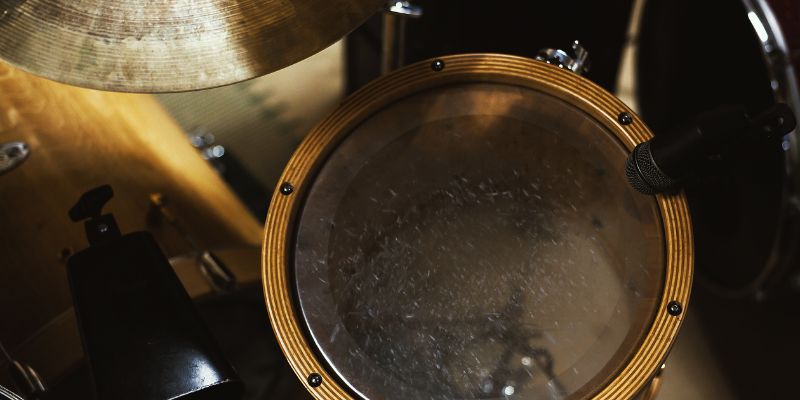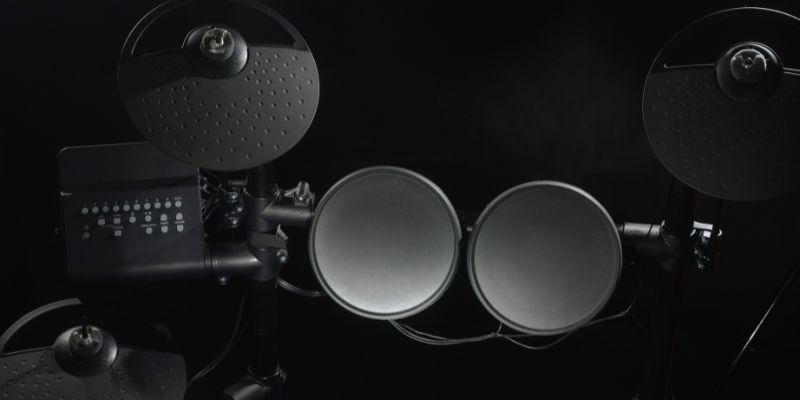Every year, the debate between acoustic and electric drums becomes more complicated. Electronic kits have started to really grow in popularity because they’re better suited to specific surroundings and styles of music, but acoustic kits still retain their reputation as providing a more authentic drumming experience. In this post, we’re going to narrow down the discussion to two of the biggest factors around which kind of kit to buy: home environment and budget. This will help you make a more informed choice about what kind of kit you’ll (hopefully soon!) be bringing home as an aspiring drummer.
Why Are Acoustic Kits Still So Relevant?
Simply put, the biggest reason acoustic drums are still favoured over their electronic counterparts is “feel”. It’s hard to define exactly what feel means, so let’s go into a little more detail. Acoustic kits are better for developing technique, as the drumheads are much more realistic surfaces where you’ll learn crucial skills like stick control, rebound and dynamics. While electronic drums produce a more standard set of sounds when you play them, you’ll need to actively adapt your own playing and feel to get the sound you want from an acoustic kit. For example, playing a rimshot on the snare is an extremely important ability, and it’s more valuable to learn how to do it on an acoustic kit than to simulate the same sound on an electronic one.
Another big example is where you hit the drum—on an acoustic kit, you learn to try and consistently hit the middle of a drum because that’s when it usually sounds best. This isn’t as important on an electronic kit. Things like tuning your drums and hitting your cymbals in the right way are better learned on an acoustic kit as well. Most famous drummers still stick to acoustic kits because they’ve learned how to get the most out of them, and how to change them up to suit different situations, eg. using smaller kits for genres like jazz and bigger, more powerful drums for rock.
Okay, So Why Even Consider Electronic Drums?
Many of the benefits of electronic drums can be summed up in one word: convenience. With the pandemic and lockdowns still ongoing, how will having a drum kit at home affect your family and neighbours? If it’s likely that the noise from an acoustic kit will be a problem for them, you might even end up being unable to practice, or only play at specific times. In this scenario, an electronic kit seems like the ideal choice. You can connect them to any kind of output, whether that’s to your headphones for quiet, non-disturbing practice, or speakers/monitors when required. You simply don’t have the same level of volume control with an acoustic kit without buying more accessories like low-volume cymbals, or muffling the drums, or (ah! woe!) figuring out how to sound-proof a room in your house.
What’s more, these kits can usually be disassembled with relative ease and conveniently folded up if you need to move them somewhere else. They can also be programmed through samples or kit packs to produce virtually any sound you want. If you’re just starting out on the drums, you won’t need to worry about tuning an electric kit either.
Which One Makes More Sense for Your Budget?
Beginner to mid-range electronic kits from reputable companies like Roland and Yamaha are usually more expensive than their acoustic counterparts. This means that an electronic kit will generally be a bigger investment than an acoustic kit when first purchased. However, remember that acoustic kits will require many more additional costs as they go along—things like buying new drumheads, upgrading your cymbals, and general hardware maintenance will keep popping up. An electronic kit, meanwhile, is a one-time investment, and you’ll be able to avoid some of the natural wear-and-tear that comes with playing regularly on an acoustic kit. As mentioned earlier, you’ll also be able to do much more in terms of variety of sound with an electronic kit, whereas it’s difficult to change up the sound of your acoustic kit without more expensive mics and cymbals, or just a really good sound engineer/producer!
Final Thoughts
The acoustic vs. electronic drums debate will no doubt continue for many years to come. Every year, there are new features that are added to both types of drums that build their case even further. In this post, we’ve looked at some of the basic differences that are most relevant to someone who’s buying a drum kit for the first time without getting lost in the endless number of details in between.
To sum up, electronic kits are generally better for everyday practice. You can practice anytime you like, and they can be a godsend for people who have to be mindful of their family and neighbours. While they can be more expensive up front than acoustic kits (there are now a plethora of budget options that also provide decent bang-for-buck), they provide more value for money in the long run with few extra costs. They’re also more compact and work better in smaller spaces.
However, if you can manage to accommodate an acoustic kit into your life without the hassles of noise complaints, we’d recommend that you take that route instead. For now, they’re just still the kings of “feel” and provide a better experience all around. Plus, you could even look into buying a used kit and gradually adding better parts to it to reduce costs. At the end of the day, the effort and time you put into your drumming will matter much more than what kind of kit you have. Whichever option you do choose, we hope you’ll soon be sitting at your new drum kit, and plotting world domination…








